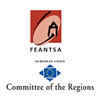Housing Rights: Breakthrough ruling by the Council of Europe
European Federation of National Organisations working with the Homeless
Press release – 5 June 2008
Article 31 of the revised European Social Charter of 1996 is devoted to the right to housing and reads: “With a view to ensuring the effective exercise of the right to housing, the Parties undertake to take measures designed:
The ECSR has ruled that France is not in conformity with Article 31 on six grounds. These include the poor implementation of, or insufficient progress in, existing measures relating to: inadequate housing conditions; preventing evictions; reducing homelessness; providing social housing aimed at the most deprived; social housing allocation; and discrimination against Travellers. In particular, the ESCR found that “measures currently in place to reduce the number of homeless are insufficient, both in quantitative and qualitative terms”.
FEANTSA first lodged its collective complaint in November 2006, arguing that despite ambitious laws and policies, France had failed to effectively implement the right to housing for all, especially for the most vulnerable. Although housing rights are enshrined in widely ratified international instruments and in several European States national laws, their concrete implementation remains inadequate in many countries.
FEANTSA considers the ruling of the ECSR to be important in that it addresses and clarifies a number of essential elements concerning State obligations in the promotion and implementation of the right to housing. It will certainly contribute to the building of international standards.
FEANTSA also acknowledges that since November 2006, France has adopted a number of encouraging initiatives, including a law on the enforceable right to housing (DALO). However, further action and progress are crucial to ensure that everyone’s right to housing is fully and effectively implemented.
Says Freek Spinnewijn, Director of FEANTSA, “FEANTSA welcomes this landmark ruling and will use this tool to encourage other European States to guarantee the right to housing to everyone. Policies should first and foremost target the most vulnerable.”
FEANTSA and its members believe the ruling will lead to the promotion of a shared understanding of housing rights and to a more effective implementation in these rights by European States. The ECSR’s conclusions should be a driver for change not only in France, but across Europe.
FEANTSA is the European Federation of National Organisations working with the Homeless. Established in 1989, FEANTSA represents today more than 100 organisations working with people experiencing homelessness in about 30 European countries which provide a wide range of services to people experiencing homelessness, including housing, health and employment support. More information is available on: www.feantsa.org
Background information
Collective complaint mechanism: In order to improve the effective enforcement of the social rights guaranteed by the Charter (ETS No. 035 and revised European Social Charter No.163), an Additional Protocol providing for a mechanism of collective complaints was ratified (ETS No. 158 of 1995). It foresees the participation of non State actors, including international non-governmental organisations.
What is unique about this mechanism is that not only does it allow for a piece of legislation to be challenged, an entire government policy in a particular field can be questioned. This is on the provision that the State has ratified both the Charter article(s) concerned and the collective complaint mechanism (information on ratifications and accepted provisions by country available on the Council of Europe web site).
Procedure: once a collective complaint has been lodged by an organisation entitled to do so, it is examined by the European Committee of Social Rights (ECSR), which declares it admissible if all formal requirements have been met. The Committee, which supervises the implementation of the Charter by States both through national reports and the collective complaint mechanism, then takes a decision on its merits, which it forwards in a report to the parties concerned and to the Committee of Ministers. The report is made public within four months of it being forwarded. On the basis of the report, the Committee of Ministers adopts a resolution.
Main arguments: In the last thirty years, the quality of housing for the majority of the population in France has improved, especially with the adoption of a number of ambitious housing laws and policies. However, FEANTSA argued that despite these measures, France had failed in effectively implementing the right to housing for all, and in particular in meeting the housing needs of the most vulnerable. FEANTSA’s complaint reviewed in detail the state of play in France, in terms of international obligations, internal legislation, existing public policies and facts from both official and independent sources. FEANTSA chose a crosscutting strategy, which covered both very specific issues and more general arguments (see all complaint related documents).
For an overview of relevant points, please read FEANTSA’s brief “Main elements detailed”, which is available in the section of FEANTSA’s web site devoted to collective complaint 39/2006.
The full report is available on the Council of Europe web site.

